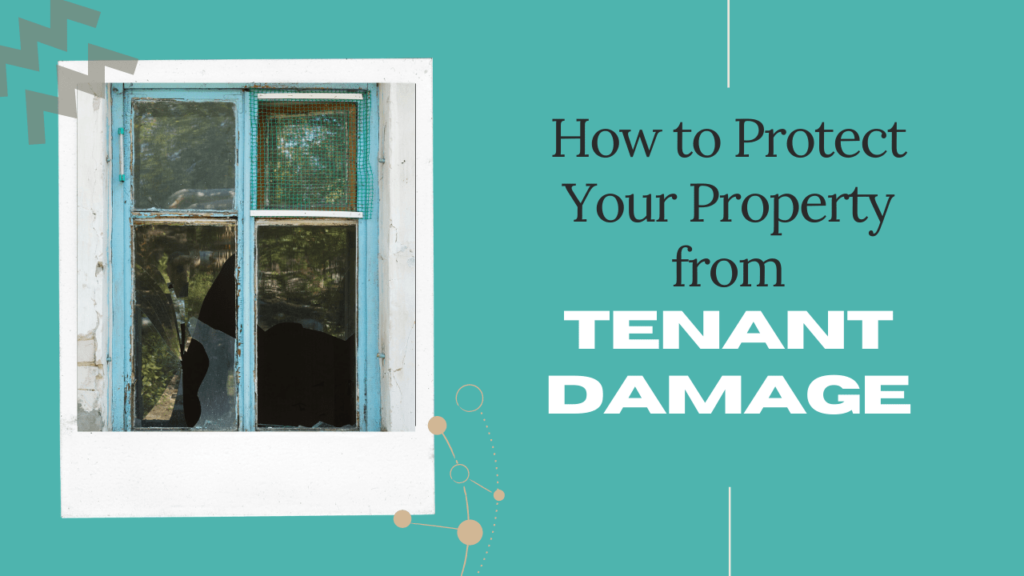
Ask any landlord what they fear the most, and they’re likely to tell you unpaid rent and tenant damage.
These are understandable fears. Tenant damage can be especially alarming. You’re trusting your residents to take care of the property and keep it clean and maintained. If they move out and you find thousands of dollars in damage left behind, it’s hard not to take that personally. There’s also the financial damage that’s been done.
How can you protect your Upper Marlboro property from tenant damage?
There are a few ways to do that, and we’re going to help you put a plan in place that protects the condition and value of your rental property.
Like all landlords, you know there’s plenty of risk involved in owning residential real estate and renting investment properties out to tenants. While you’re more likely to earn money than lose money, there’s always just enough unpredictability to leave you wondering whether your asset is in good hands.
It’s rare that excessive damage or vandalism happens, but you might end up with a situation that you secretly feared but never really anticipated. We’ve heard some horror stories about tenant damage. We’re sure you’ve heard those stories, too.
Protecting your investment property from tenant damage requires good screening, an adequate security deposit, routine inspections, and an insurance requirement.
Here are the best tips we can provide your Upper Marlboro property management resource.
Never Skip the Upper Marlboro Tenant Screening Process
Avoiding property damage at your investment property starts with good tenant screening. It’s a proactive way to reduce the likelihood of having a bad tenant make a mess of your property.
We have seen some landlords who barely glance at a credit report. We’ve seen landlords who don’t screen at all. This is a mistake. You need to have a process in place, and it needs to be a thorough and consistent process. Otherwise, you’re inviting a lot of risk into the rental process.
This does not mean you’re looking for a tenant with a perfect credit score and a six-figure income. We’ve also seen landlords who set impossible standards and then lose money on long vacancies. Find the right middle ground. Establish some consistent criteria for the residents you’ll accept, and stick to that criteria when you’re screening.
Here are a few of the things to look for when you’re screening to ensure you’re not handing the keys to your property over to people who are likely to damage it:
- Check credit. A credit score doesn’t necessarily tell you that a person is going to be a responsible renter, but you do need to know where they stand financially. Evaluate the credit score, but dig into the full report as well. Do they owe former landlords or apartment buildings money? That could be a red flag. Are their utility accounts in collections? Look for past evictions and unpaid debts. These things could indicate a problem.
- Verify income. You want to know how much your tenant earns and you also want to know where they work. This will not only tell you whether they’re qualified to rent your property; it will also give you some leverage if you find yourself having to collect unpaid debts from your tenant after they move out. No one likes to have their workplace called.
- Talk to current and former landlords. This is perhaps the most critical step in the screening process when you’re trying to avoid potential tenant damage. Find out if there was any damage left behind or even excessive wear and tear. Ask about whether the prospective tenant was given a full security deposit refund. Ask if that landlord would rent to the tenant again. If your prospective tenants are unwilling to provide references and contact information, you should be wary. There might be something that they’re hiding.
Every screening process needs to follow all fair housing guidelines.
Collect a Healthy Security Deposit
Collecting a security deposit is an important part of protecting your property against tenant damage.
Security deposits protect you against unpaid rent. They protect you against the potential damage that can occur at your property due to the abuse, misuse, or neglect of your home. While you aren’t generally permitted to use the deposit during the course of the tenancy, you are entitled to hold those funds in case you need them.
During a more relaxed rental market, owners and landlords are sometimes required to reduce the amount of the deposit they collect in order to stay competitive and attract tenants. Sometimes, apartment communities will ask for dramatically low deposits – $300 or even $100.
Our current rental market in Upper Marlboro, however, is competitive. The demand for well-maintained homes is outpacing the supply. You don’t have to rely on gimmicks or dangerously low security deposits in order to attract tenants.
Make sure you understand security deposit laws when you’re establishing how much you’ll collect, where you’ll hold that deposit, and most importantly, how you’ll return it.
You cannot deduct the cost of normal wear and tear from the tenant’s security deposit, but you can deduct the damage you need to address after the tenant vacates. If a door is ripped from its hinges, you can use the security deposit. If floors and walls are scratched and damaged, you can use the security deposit to replace them.
Collect a security deposit that’s high enough to cover any potential damage that’s left behind after a tenant moves out. Most tenants expect to pay the equivalent of one month’s rent. In the state of Maryland, the maximum amount a landlord can charge a tenant as a security deposit is two months’ rent. Asking for that full amount would certainly provide you with extra protection against the threat of tenant damage. But, it might hold you back from placing the best tenants. Not a lot of residents will be prepared or willing to provide that much before moving into your home.
Establish a Firm Pet Policy
There are some great reasons to provide a pet-friendly home. Rental properties that are welcoming to pets often have less vacancy and lower turnover. You can earn a little more every month by charging pet rent.
However, pets come with risk. If you think tenants can damage a property, imagine what an animal can do.
You may find yourself paying to steam clean or completely replace carpets because they’re full of pet odors. There could be fleas or large scratches on wood floors or walls. Landscaping could be dug up by dogs.
Always collect a pet fee to protect yourself against the potential for pet damage.
Create a Positive Tenant Relationship
Protecting your property means establishing and maintaining a good tenant relationship. When you get along well with your residents and they respect you and your rental home, you’ll find that they’re less likely to damage it.
You want tenants who report maintenance issues right away. Deferred and unreported maintenance can lead to property damage. You want to make sure your tenants are open, transparent, and communicative. Be responsive to their needs and create a relationship that’s based on trust.
Conduct Inspections of your Upper Marlboro Rental Property
A thorough move-in and move-out inspection will allow you to document your property’s condition before and after the tenancy. Make sure you take a lot of pictures and record detailed notes.
We also recommend you inspect the home once during the tenancy. You’ll be able to look for deferred or unreported maintenance issues that can lead to damage. You’ll also have the opportunity to talk with your tenants and make sure the lease is being followed and the home is being kept clean.
When tenants know that you’re going to inspect during the lease period, they’ll be less likely to cause damage. It’s a good way to protect your property.
Drive by inspections can also be useful and will tell you right away if something looks amiss.
Renter’s Insurance for Upper Marlboro Tenants
 Renter’s insurance benefits your tenants because it covers their personal belongings.
Renter’s insurance benefits your tenants because it covers their personal belongings.
If a tree crashes through a window during a bad storm and their electronics are damaged, they’ll need renter’s insurance to cover the replacement cost. More importantly, there’s also a liability element to renter’s insurance policies. If your tenant causes damage, your property insurance would cover it, but if it’s the tenant’s responsibility, they should be held accountable by paying for it with their own policy. This will keep your premium lower and your claim report clear.
Sometimes tenant damage is intentional, but often it’s due to simple neglect.
One of the best ways to reduce the risk of property damage is to work with a professional Upper Marlboro property management company. Risk management is only one of the services we provide. Please contact us at Stripe Management. We work with owners, investors, and properties in Upper Marlboro, Prince George’s County, Washington, D.C., Capitol Heights, District Heights, Baltimore, and anywhere in the DC metro area.
